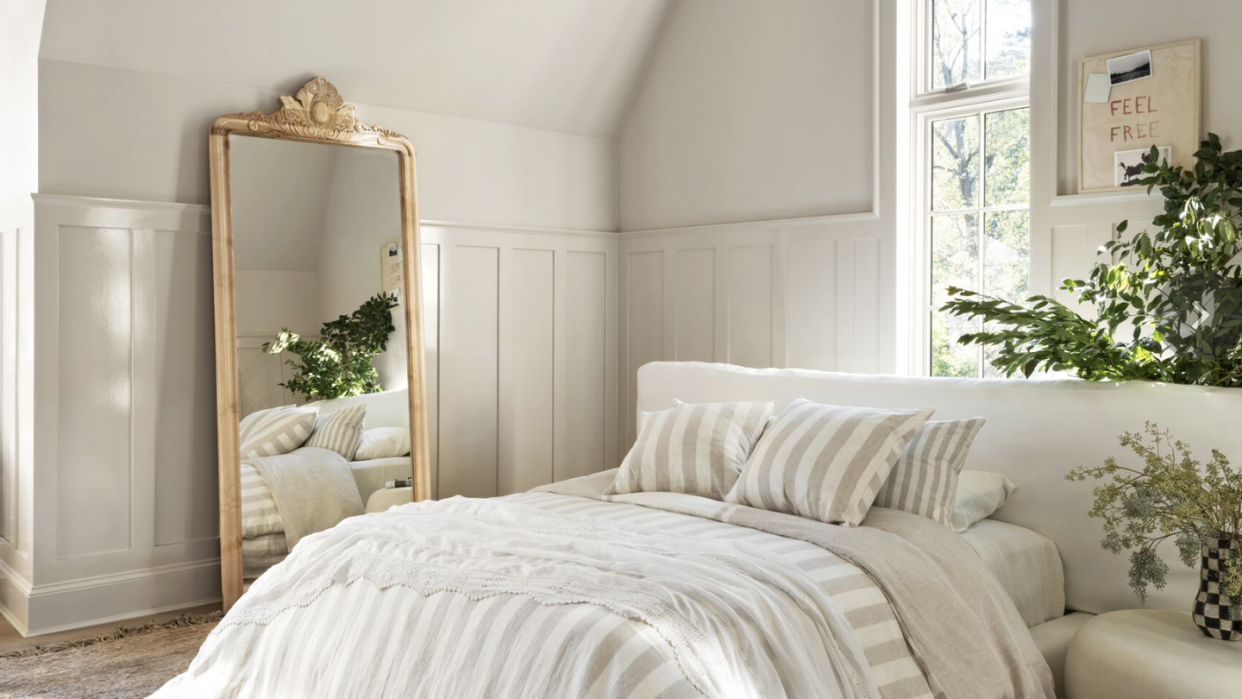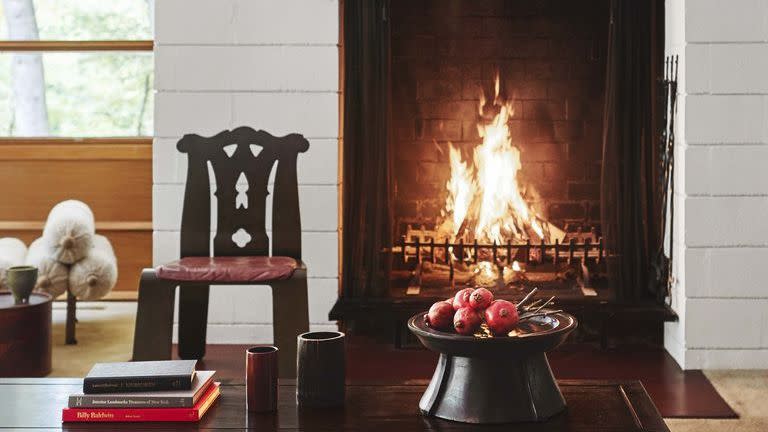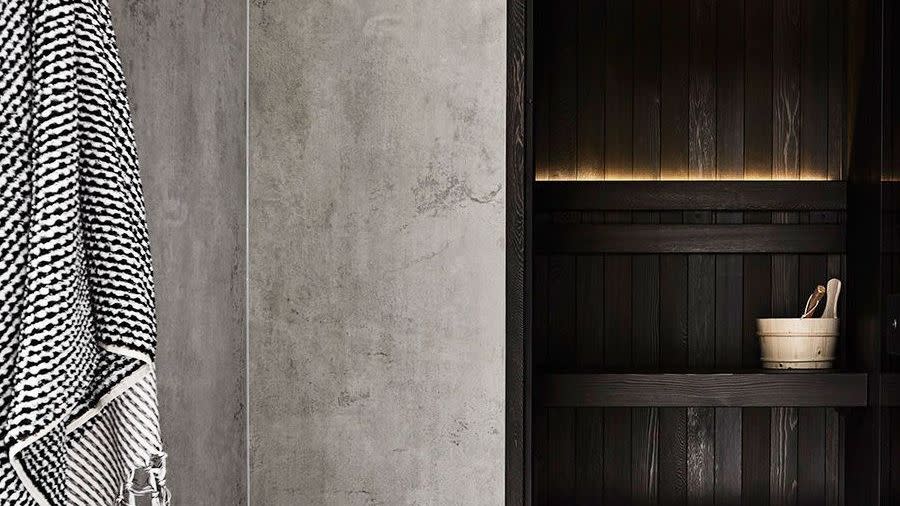This Is Why You Need to Feng Shui Your Home

[table-of-contents] stripped
Feng shui is an ancient Chinese philosophy that interior designers and wellness advocates have heralded for decades. It encourages homeowners to improve the energy in their homes with seemingly small but practical and effective methods like moving the bed or painting their home office walls in a soothing color. The phrase derives from an ancient poem about the connection between human life and the environment: Feng means "wind," and shui means "water." The term reflects the ebb and flow in every human's relationship with their surroundings.
So what does this mean for interior design? Everything! This ancient Chinese philosophy helps people find balance in their lifestyles by harmonizing their living spaces with nature through design.
It takes a few steps to achieve a space that prioritizes feng shui, but the vital element to understand is qi (pronounced "chee"). In feng shui, qi is the energy that connects all living things. By implementing design principles that promote auspiciousness, feng shui is said to allow your energy to flow uninhibited through your home, which improves your overall quality of life. Promoting comfort and balance is the ultimate goal of a feng shui home.
History of Feng Shui
Over the past 30 years, feng shui principles have been developing a loyal following in the American interior design world, but the design philosophy has roots in ancient China. It actually originated in astrology, with ancient cultures designing burial plots to align with celestial objects like stars. Over the centuries, practitioners refined it, expanding it into urban planning and finally into the home itself.
Basic Principles of Feng Shui
Feng shui has quite a number of principles to follow to allow qi to flow effortlessly through your home. Luckily, most of them are budget friendly since they involve moving furniture around. Feng shui tells you where to place key pieces like beds (never put a bed under a window if you can help it), office desks, and living room sofas. It also determines the best color to paint your front door, depending on which cardinal direction it faces. While different feng shui schools offer their own variations, the same principles form the basis of the philosophy.
Bagua Map
Bagua, which translates to "eight areas," is an energy map that is laid over the floor plan of your home. It's a three-by-three grid with eight boxes, each representing a different category of your life—loosely translated into wealth, fame, love, family, children, knowledge, career, and helpful people—with the center box representing you. If any of these areas in your life need improvement, you should apply the appropriate feng shui principles in the corresponding space of your home.

Five Elements
Feng shui principles also focus on the five elements: earth, metal, water, wood, and fire. While each can be taken literally in terms of incorporation into the home (i.e., using wood furniture in a room with a fireplace), they also correspond to certain emotions, colors, shapes, and areas on the bagua map. Ultimately, you should use interior design to balance all five elements for the best qi flow, tweaking per your needs as they change.
Yin and Yang
The philosophy of yin and yang permeates many ancient Chinese fields of study, from the martial arts to medicine to feng shui. It's a concept of duality, demonstrating that opposite forces are interconnected and work in tandem in order to create harmony: yin is a passive, soft energy, while yang is an aggressive, bold one. Regarding interior design, you'll want a balance, with yin energy in calm, relaxing spaces like bedrooms and bathrooms and yang energy in more social, productive spaces like the kitchen or home office.

How Do I Incorporate Feng Shui Into My Home?
Feng shui is a complex tradition with numerous components that require study to interpret fully and loopholes that design lovers are worried to take because they can compromise the integrity of the feng shui principles. Should you put your furniture in the center of your studio apartment bedroom to avoid putting it in corners? Is it really that bad to have your bed facing the door? While you can take baby steps into the world of feng shui on your own, many people find it helpful to consult a feng shui expert to revamp their space.
Follow House Beautiful on Instagram.
You Might Also Like

